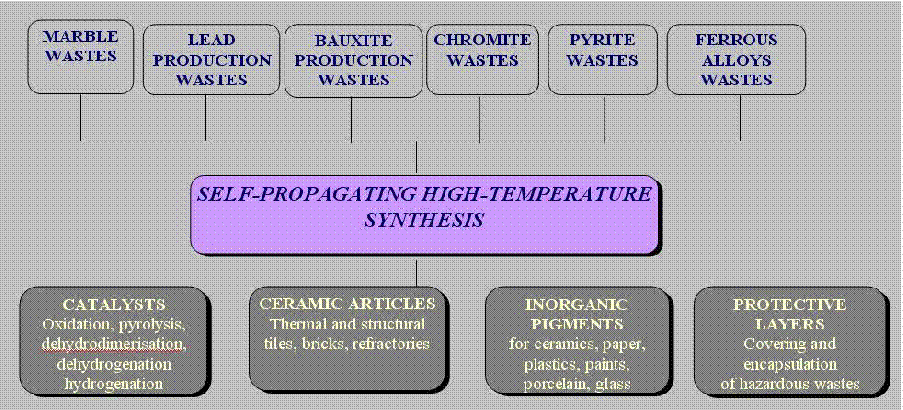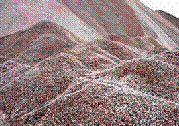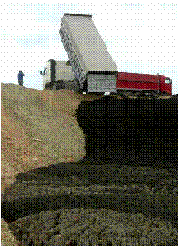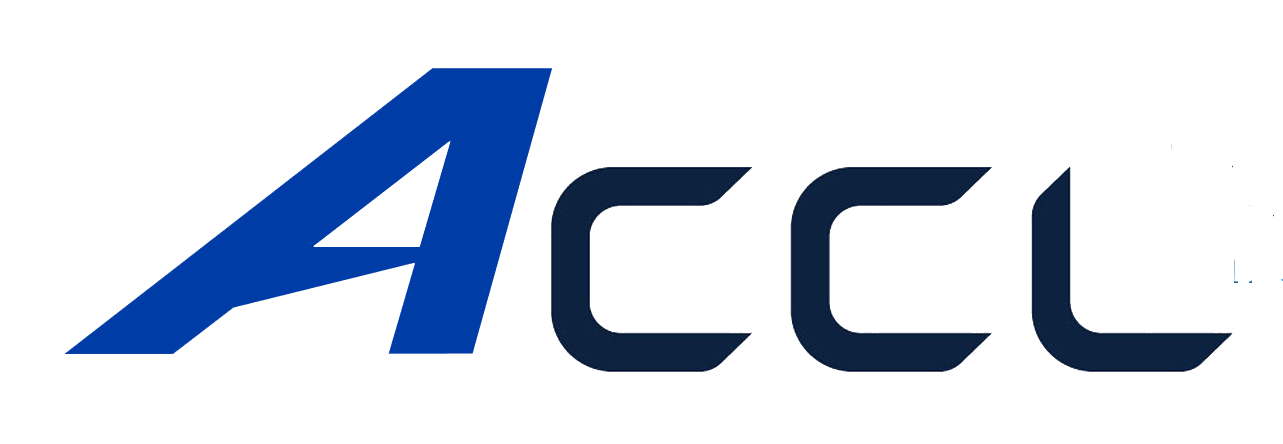Recycling of solid waste
The challenge of absorption of solid recyclable wastes is serious and global and many industries are struggling to find solutions, especially in cases where the amounts are very large.
During the past few years, the laboratory has carried out a number of research projects, generally supported by industry, on finding cost-effective methods to recycle and absorb many types of solid wastes, in particular with the adaptation of the SHS method, as shown in the diagram below.

Specifically, we have studied the following wastes:
1) Steel-mill waste (rust and slag, right). These, after suitable treatment, can be used to increase the strength of heavy ceramics (bricks and roof tiles).
2) Glass and old bulbs can be recycled as glazing and also as additives for bricks and tiles.
3) Organic wastes from meat processing factories can be transformed – after suitable treatment – into a biofuel.
4) Waste mud from biological treatment of civil waste (right). This needs to be first dried and our Microwave-assisted drying method gives a very cost and time efficient solution. The dried mud can also be used as additive in heavy ceramics and cement making.
In addition, using special microwave/UV systems waste water can be very efficiently sterilised after filtering in continuous flow (below).




